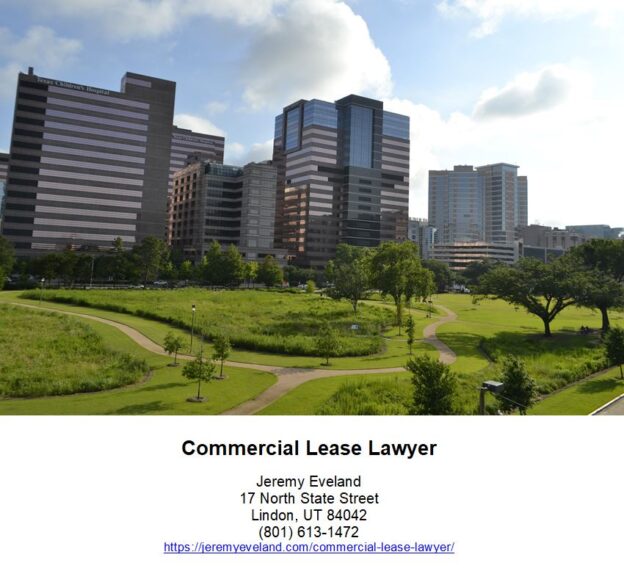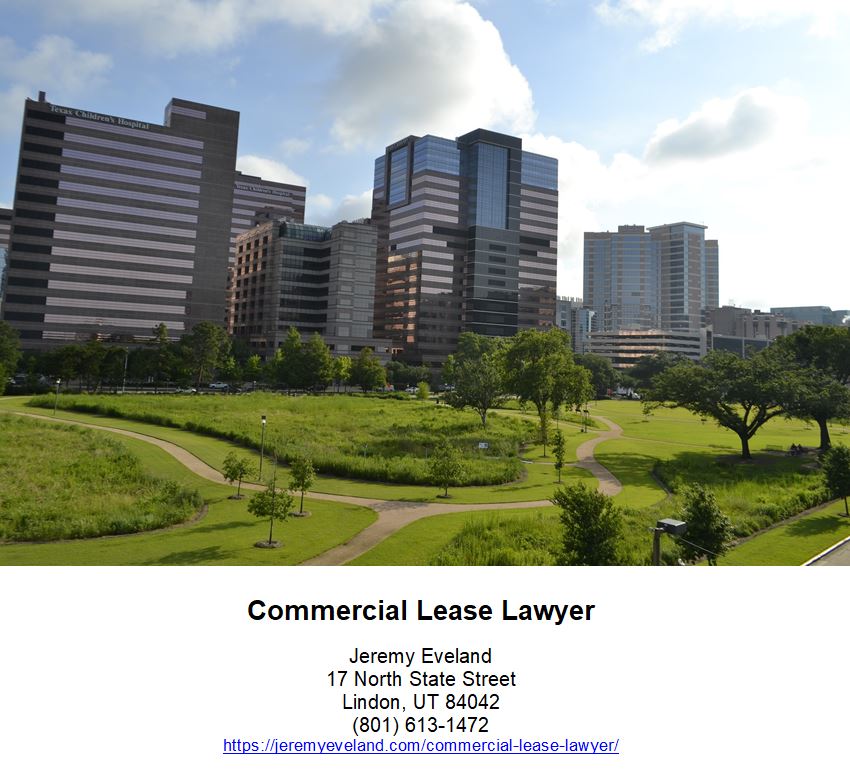-
Attorney at Law
- Introduction
- Enforceable in Court
- Fair to Both Parties
- Lease Agreement Should Include All Necessary Clauses
- Fits Your Budget
- Protects Your Rights
- Works for Both Parties
- Understanding the Legal Language of Lease Agreements
- Negotiating a Fair Lease Agreement
- Get the Most Out of Your Lease Negotiations
- Best Terms in Your Lease Agreement
“Secure the best deal for your business – learn the 10 Tips for Negotiating Lease Agreements!”
Introduction
Negotiating a lease agreement can be a daunting task, especially if you are unfamiliar with the process. It is important to understand the terms of the lease agreement and to be prepared to negotiate the best deal for yourself. This article will provide you with 10 tips for negotiating lease agreements that will help you get the most out of your lease. These tips will help you understand the process, prepare for negotiations, and ensure that you get the best deal possible.
Enforceable in Court
A contract is a legally enforceable agreement between two or more parties. It is a binding document that outlines the rights and obligations of each party. In order for a contract to be enforceable in court, it must meet certain criteria.
First, the contract must be in writing. Oral contracts are generally not enforceable in court; although it depends on the situation and the testimony of the parties. With that being said, even if the oral contract is enforceable, you are so much better to have the contract in writing. Memories fade over time and it is clear when it is in writing. The contract must also be signed by all parties involved.
Second, the contract must be supported by consideration. Consideration is something of value that is exchanged between the parties. This could be money, goods, services, or a promise to do something.
Third, the contract must be made with the intention of creating a legal relationship. This means that the parties must have the intention to be legally bound by the terms of the contract.
Fourth, the contract must be made between two competent parties. This means that both parties must be of legal age and of sound mind.
Finally, the contract must be legal. This means that the contract must not violate any laws or public policy.
If a contract meets all of these criteria, it is considered legally enforceable in court. If any of these criteria are not met, the contract may not be enforceable.
Fair to Both Parties
When entering into a contract, it is important to ensure that the agreement is fair to both parties. This means that both parties should have a clear understanding of the terms of the agreement and the obligations of each party.
The contract should be written in a clear and concise manner, using language that is easily understood by both parties. It should include all relevant information, such as the names of the parties, the purpose of the agreement, the duration of the agreement, and any other relevant details.
The contract should also include a clause that outlines the consequences of a breach of the agreement. This clause should clearly state the remedies available to the non-breaching party, such as the right to terminate the agreement or seek damages.
The contract should also include a clause that outlines the dispute resolution process. This clause should specify the process for resolving any disputes that may arise between the parties, such as mediation or arbitration.
Finally, the contract should include a clause that outlines the governing law. This clause should specify which jurisdiction’s laws will apply to the agreement and any disputes that may arise.
By ensuring that the agreement is fair to both parties, the parties can be confident that their rights and obligations are clearly defined and that any disputes that may arise can be resolved in an efficient and effective manner.
Lease Agreement Should Include All Necessary Clauses
A lease agreement is a legally binding contract between a landlord and tenant that outlines the terms and conditions of the rental arrangement. It is important that the lease agreement includes all necessary clauses to ensure that both parties are protected and that the agreement is enforceable.
The lease agreement should include the names and contact information of both the landlord and tenant. It should also include the address of the rental property, the length of the lease, the amount of rent due, the payment schedule, and any late fees or other charges.
The lease agreement should also include a clause outlining the tenant’s responsibility for repairs and maintenance. This should include who is responsible for minor repairs, major repairs, and any other maintenance that may be required.
The lease agreement should also include a clause outlining the tenant’s rights and responsibilities. This should include the tenant’s right to quiet enjoyment of the property, the tenant’s responsibility to keep the property clean and in good condition, and the tenant’s right to privacy.
The lease agreement should also include a clause outlining the landlord’s rights and responsibilities. This should include the landlord’s right to enter the property for inspections and repairs, the landlord’s responsibility to maintain the property in a safe and habitable condition, and the landlord’s right to collect rent.
The lease agreement should also include a clause outlining the terms of the security deposit. This should include the amount of the security deposit, when it is due, and how it will be refunded.
Finally, the lease agreement should include a clause outlining the terms of the termination of the lease. This should include the notice period required for either party to terminate the lease, the conditions under which the lease can be terminated, and any penalties for early termination.
By including all necessary clauses in the lease agreement, both parties can be assured that their rights and responsibilities are clearly outlined and that the agreement is legally enforceable.
Fits Your Budget
When it comes to budgeting, it is important to consider your financial goals and needs. It is important to create a budget that fits your lifestyle and financial situation.
The first step in creating a budget is to determine your income and expenses. This includes all sources of income, such as wages, investments, and government benefits. It also includes all expenses, such as rent, utilities, food, and entertainment. Once you have determined your income and expenses, you can begin to create a budget.
When creating a budget, it is important to prioritize your spending. Start by setting aside money for essential expenses, such as rent, utilities, and food. Then, allocate money for other expenses, such as entertainment and savings. It is important to remember that your budget should be flexible and allow for unexpected expenses.
Once you have created a budget, it is important to track your spending. This will help you stay on track and ensure that you are staying within your budget. You can use a budgeting app or spreadsheet to track your spending.
Creating a budget that fits your budget is an important step in achieving your financial goals. By tracking your spending and creating a budget that fits your lifestyle and financial situation, you can ensure that you are staying on track and reaching your financial goals.
Protects Your Rights
Having a lawyer to protect your rights is essential in many situations. A lawyer can provide you with legal advice and representation in court. They can help you understand the law and your rights, and can provide you with the best possible outcome in a legal dispute.
Lawyers are knowledgeable in the law and can help you understand the legal process. They can explain the legal implications of any action you take, and can help you make informed decisions. They can also help you understand the legal documents you may need to sign, and can provide advice on how to proceed in a legal dispute.
Lawyers can also represent you in court. They can present your case in the best possible light, and can help you understand the court process. They can also negotiate on your behalf, and can help you reach a settlement or agreement with the other party.
Having a lawyer to protect your rights is important in many situations. They can provide you with legal advice and representation, and can help you understand the law and your rights. They can also help you make informed decisions and can represent you in court. Having a lawyer to protect your rights is essential in many situations.
Works for Both Parties
When it comes to negotiating a contract between two parties, it is important to ensure that both parties are satisfied with the outcome. To do this, it is important to consider the needs of both parties and to ensure that the contract is fair and equitable.
When negotiating a contract, it is important to consider the interests of both parties. This means that both parties should have an opportunity to express their needs and concerns and to negotiate a contract that meets their needs. It is also important to ensure that the contract is clear and concise, so that both parties understand the terms and conditions of the agreement.
It is also important to ensure that the contract is legally binding. This means that both parties must agree to the terms and conditions of the contract and that they must abide by them. This ensures that both parties are held accountable for their actions and that the contract is enforceable.
Finally, it is important to ensure that both parties are satisfied with the outcome of the negotiation. This means that both parties should be able to agree on the terms and conditions of the contract and that they should be able to come to an agreement that is beneficial to both parties.
By taking the time to consider the needs of both parties and to ensure that the contract is legally binding and fair, both parties can be assured that the contract will be beneficial to both parties. This will help to ensure that both parties are satisfied with the outcome of the negotiation and that the contract is enforceable.
Understanding the Legal Language of Lease Agreements
Lease agreements are legally binding documents that outline the terms and conditions of a rental arrangement between a landlord and tenant. Understanding the legal language of a lease agreement is essential for both parties to ensure that their rights and obligations are clearly defined.
The first section of a lease agreement typically outlines the parties involved in the agreement, the property being leased, and the duration of the lease. It is important to ensure that all of the information is accurate and up-to-date.
The second section of a lease agreement outlines the tenant’s rights and responsibilities. This includes the amount of rent due, the payment schedule, and any additional fees or charges. It also outlines the tenant’s responsibility to maintain the property in a clean and safe condition.
The third section of a lease agreement outlines the landlord’s rights and responsibilities. This includes the right to enter the property for inspections and repairs, the right to collect rent, and the right to evict the tenant if they fail to comply with the terms of the lease.
The fourth section of a lease agreement outlines the terms of the security deposit. This includes the amount of the deposit, the conditions under which it can be returned, and any restrictions on its use.
The fifth section of a lease agreement outlines the terms of any additional services or amenities that may be provided by the landlord. This includes utilities, parking, and other services.
Finally, the sixth section of a lease agreement outlines the terms of any dispute resolution process. This includes the process for resolving disputes between the landlord and tenant, as well as any applicable laws or regulations.
Understanding the legal language of a lease agreement is essential for both parties to ensure that their rights and obligations are clearly defined. It is important to read the agreement carefully and ask questions if anything is unclear. By doing so, both parties can ensure that their rights and obligations are properly protected.
Negotiating a Fair Lease Agreement
Negotiating a fair lease agreement is an important step in the process of renting a property. It is important to understand the terms of the lease agreement and to negotiate a fair agreement that meets the needs of both the landlord and the tenant.
When negotiating a lease agreement, it is important to understand the terms of the lease. The lease should include the length of the lease, the amount of rent, the security deposit, the terms of the lease, and any other provisions that are important to both parties. It is also important to understand the local laws and regulations that may affect the lease agreement.
It is also important to negotiate a fair agreement that meets the needs of both parties. The tenant should be sure to negotiate a fair rent amount that is within their budget. The landlord should be sure to negotiate a fair security deposit and other provisions that will protect their interests. Both parties should also negotiate a fair termination clause that will allow either party to terminate the lease agreement if necessary.
It is also important to negotiate a fair agreement that is in writing. A written agreement will provide both parties with a clear understanding of the terms of the lease agreement. It is also important to have the agreement reviewed by a lawyer to ensure that it is legally binding.
Negotiating a fair lease agreement is an important step in the process of renting a property. It is important to understand the terms of the lease agreement and to negotiate a fair agreement that meets the needs of both the landlord and the tenant. By understanding the terms of the lease agreement and negotiating a fair agreement, both parties can ensure that their interests are protected.
Get the Most Out of Your Lease Negotiations
Lease negotiations can be a complex process, but with the right preparation and knowledge, you can get the most out of your negotiations. Here are some tips to help you maximize your lease agreement:
1. Research the Market: Before you begin negotiations, it’s important to understand the current market conditions. Research the area to determine the average rental rates for similar properties. This will give you an idea of what you should expect to pay for your lease.
2. Know Your Needs: Before you start negotiating, make sure you know exactly what you need from the lease. Consider factors such as the length of the lease, the amount of rent, and any additional services or amenities you may require.
3. Negotiate: Once you have a clear understanding of the market and your needs, it’s time to start negotiating. Be prepared to make concessions and be willing to compromise.
4. Get Everything in Writing: Make sure that all of the terms of the lease are clearly outlined in writing. This will help to ensure that both parties are held accountable for their obligations.
By following these tips, you can get the most out of your lease negotiations. With the right preparation and knowledge, you can ensure that you get the best deal possible.
Best Terms in Your Lease Agreement
1. Term: The term of this lease agreement shall begin on ___________ and shall end on ___________.
2. Rent: The tenant shall pay rent in the amount of ___________ per month, due on the ___________ of each month.
3. Security Deposit: The tenant shall pay a security deposit in the amount of ___________, which shall be refundable at the end of the lease term, subject to any deductions for damages or unpaid rent.
4. Utilities: The tenant shall be responsible for all utilities associated with the rental property, including but not limited to electricity, gas, water, sewer, and trash.
5. Maintenance: The landlord shall be responsible for all necessary repairs and maintenance of the rental property, unless the damage is caused by the tenant.
6. Subletting: The tenant shall not sublet the rental property without the written consent of the landlord.
7. Pets: The tenant shall not keep any pets on the rental property without the written consent of the landlord.
8. Termination: Either party may terminate this lease agreement with written notice at least ___________ days prior to the end of the lease term.
9. Late Fees: The tenant shall pay a late fee of ___________ for any rent payments received after the ___________ of each month.
10. Legal Compliance: The tenant shall comply with all applicable laws and regulations while occupying the rental property.
Areas We Serve
We serve individuals and businesses in the following locations:
Salt Lake City Utah
West Valley City Utah
Provo Utah
West Jordan Utah
Orem Utah
Sandy Utah
Ogden Utah
St. George Utah
Layton Utah
South Jordan Utah
Lehi Utah
Millcreek Utah
Taylorsville Utah
Logan Utah
Murray Utah
Draper Utah
Bountiful Utah
Riverton Utah
Herriman Utah
Spanish Fork Utah
Roy Utah
Pleasant Grove Utah
Kearns Utah
Tooele Utah
Cottonwood Heights Utah
Midvale Utah
Springville Utah
Eagle Mountain Utah
Cedar City Utah
Kaysville Utah
Clearfield Utah
Holladay Utah
American Fork Utah
Syracuse Utah
Saratoga Springs Utah
Magna Utah
Washington Utah
South Salt Lake Utah
Farmington Utah
Clinton Utah
North Salt Lake Utah
Payson Utah
North Ogden Utah
Brigham City Utah
Highland Utah
Centerville Utah
Hurricane Utah
South Ogden Utah
Heber Utah
West Haven Utah
Bluffdale Utah
Santaquin Utah
Smithfield Utah
Woods Cross Utah
Grantsville Utah
Lindon Utah
North Logan Utah
West Point Utah
Vernal Utah
Alpine Utah
Cedar Hills Utah
Pleasant View Utah
Mapleton Utah
Stansbury Par Utah
Washington Terrace Utah
Riverdale Utah
Hooper Utah
Tremonton Utah
Ivins Utah
Park City Utah
Price Utah
Hyrum Utah
Summit Park Utah
Salem Utah
Richfield Utah
Santa Clara Utah
Providence Utah
South Weber Utah
Vineyard Utah
Ephraim Utah
Roosevelt Utah
Farr West Utah
Plain City Utah
Nibley Utah
Enoch Utah
Harrisville Utah
Snyderville Utah
Fruit Heights Utah
Nephi Utah
White City Utah
West Bountiful Utah
Sunset Utah
Moab Utah
Midway Utah
Perry Utah
Kanab Utah
Hyde Park Utah
Silver Summit Utah
La Verkin Utah
Morgan Utah
Lease Consultation
When you need help with a lease in Utah call Jeremy D. Eveland, MBA, JD (801) 613-1472 for a consultation.
Jeremy Eveland
17 North State Street
Lindon UT 84042
(801) 613-1472
Related Posts
Business Succession Lawyer Saratoga Springs Utah
Estate Planning Salt Lake City Utah
Business Succession Lawyer Holladay Utah
Corporate and Business Law in Utah
Does Starting My Own Business Mean I Get A Corporation Automatically?
Impact of Environmental Regulations on Business Law Compliance
Business Lawyer South Jordan Utah
Business Lawyer Millcreek Utah
Business Lawyer Taylorsville Utah
How Artificial Intelligence is Shaping the Future of Business Law
Estate Planning is Crucial for People of All Income Levels
Navigating Legal Challenges in Business Succession Planning
Business Lawyer Bountiful Utah
How To Structure A Merger Or Acquisition In Utah



